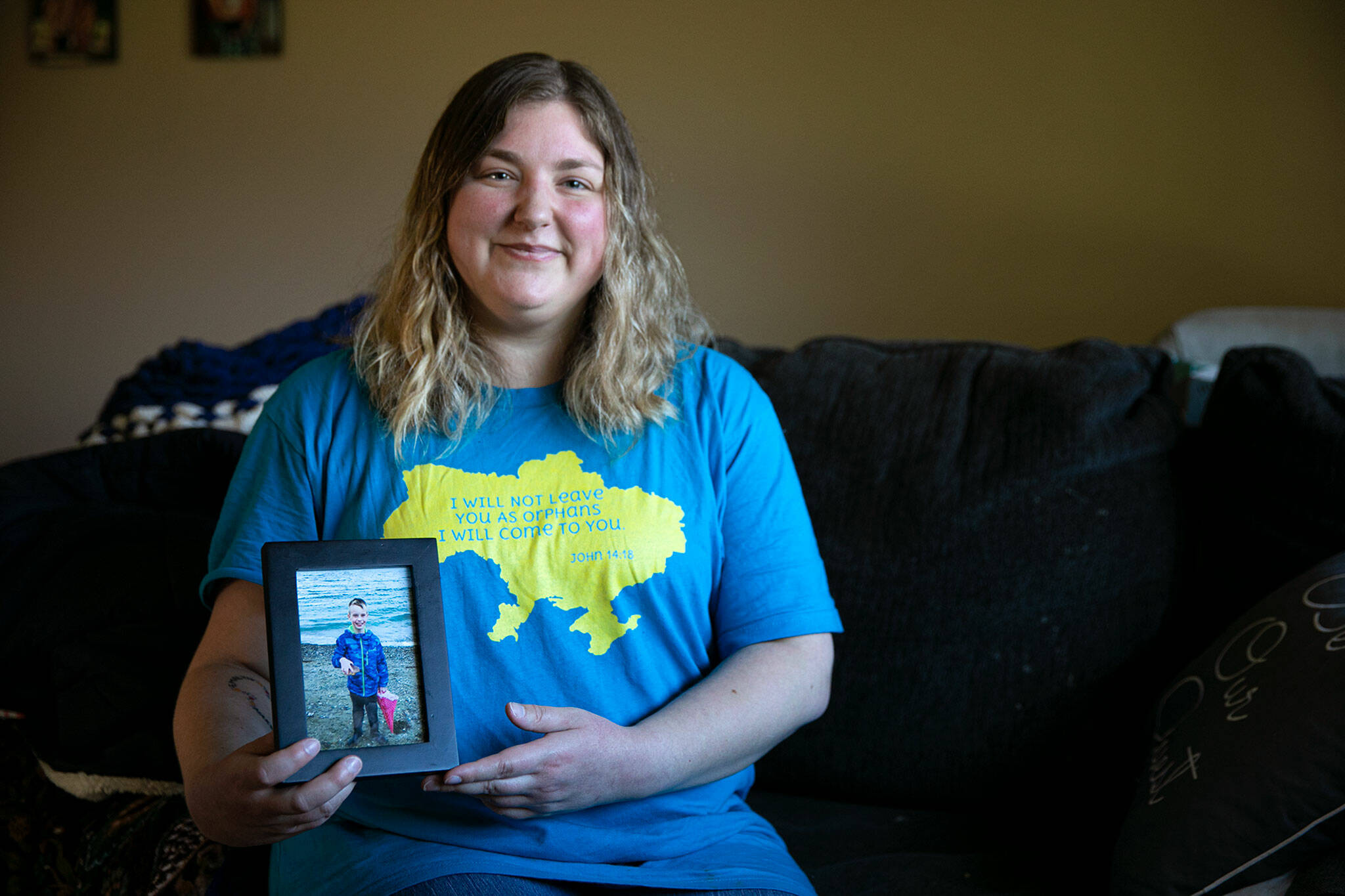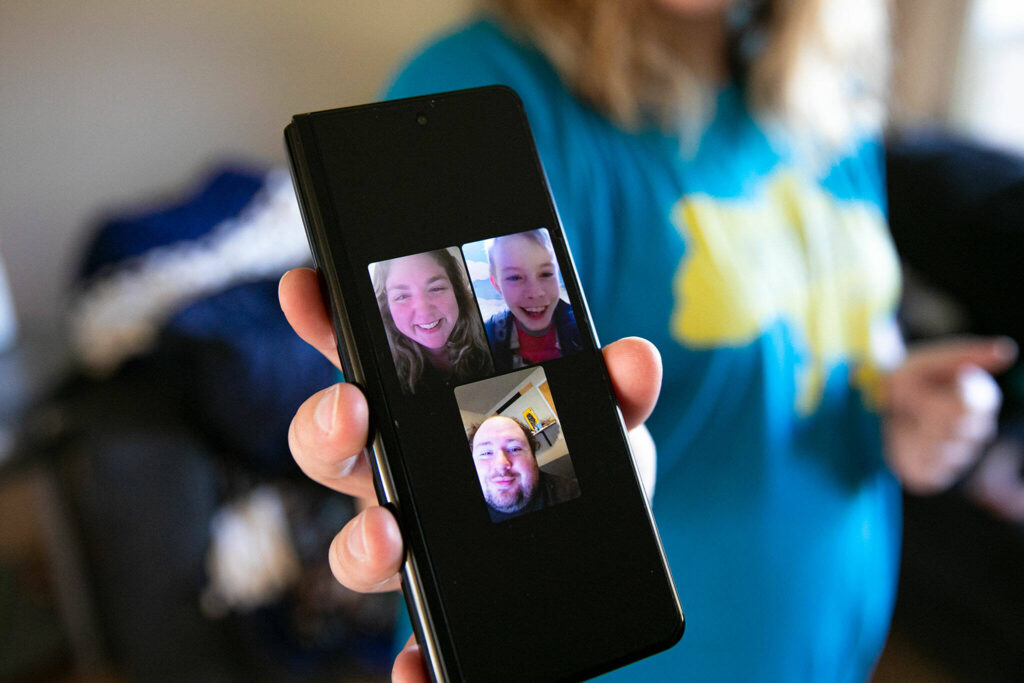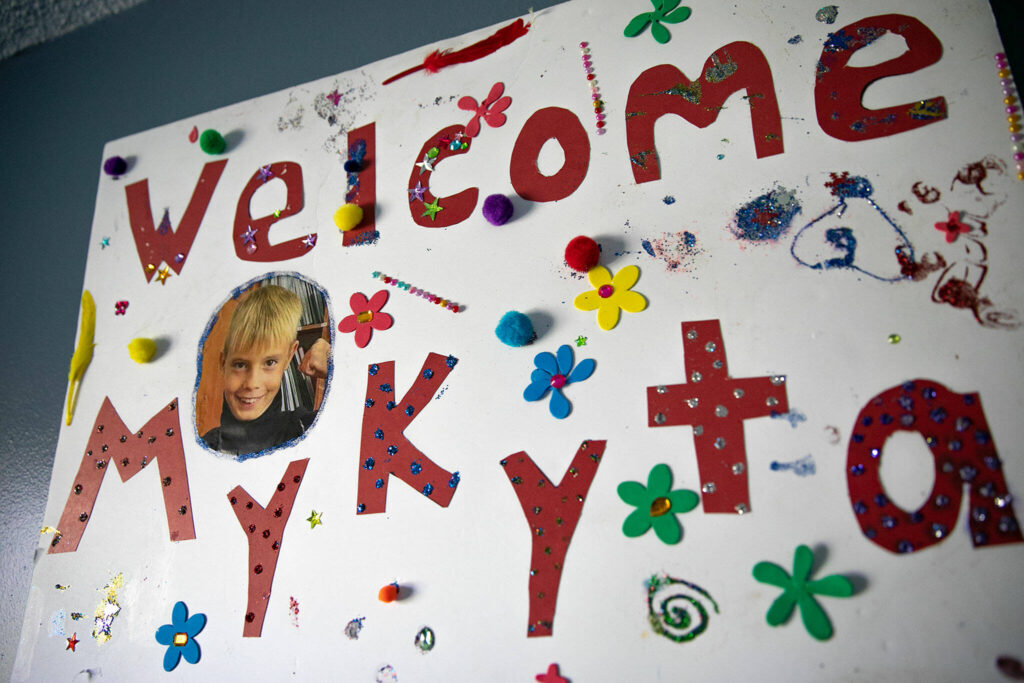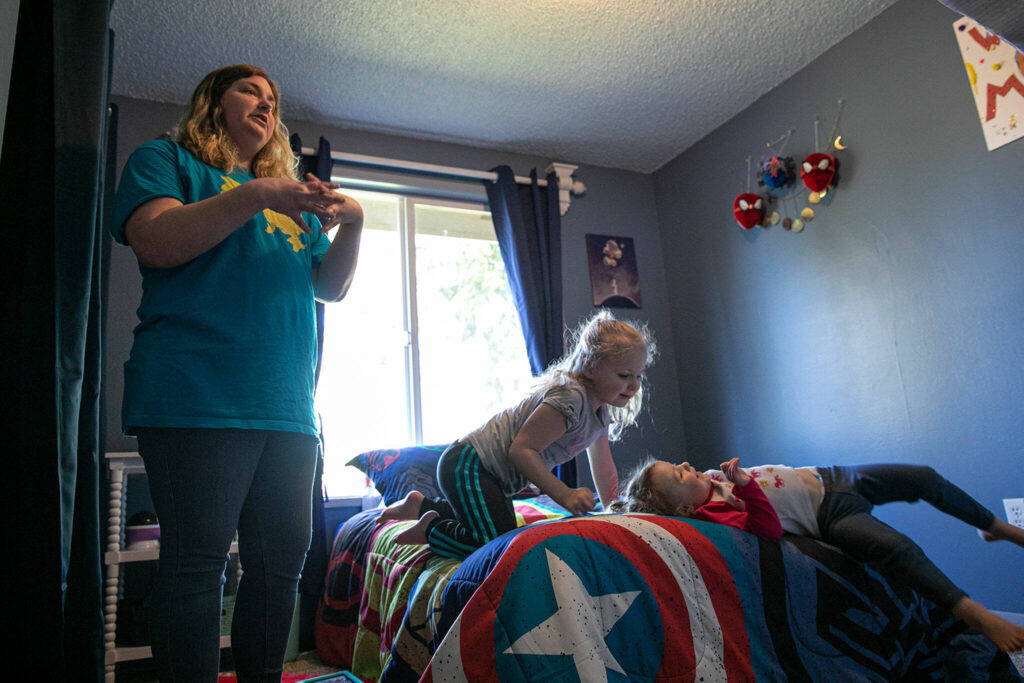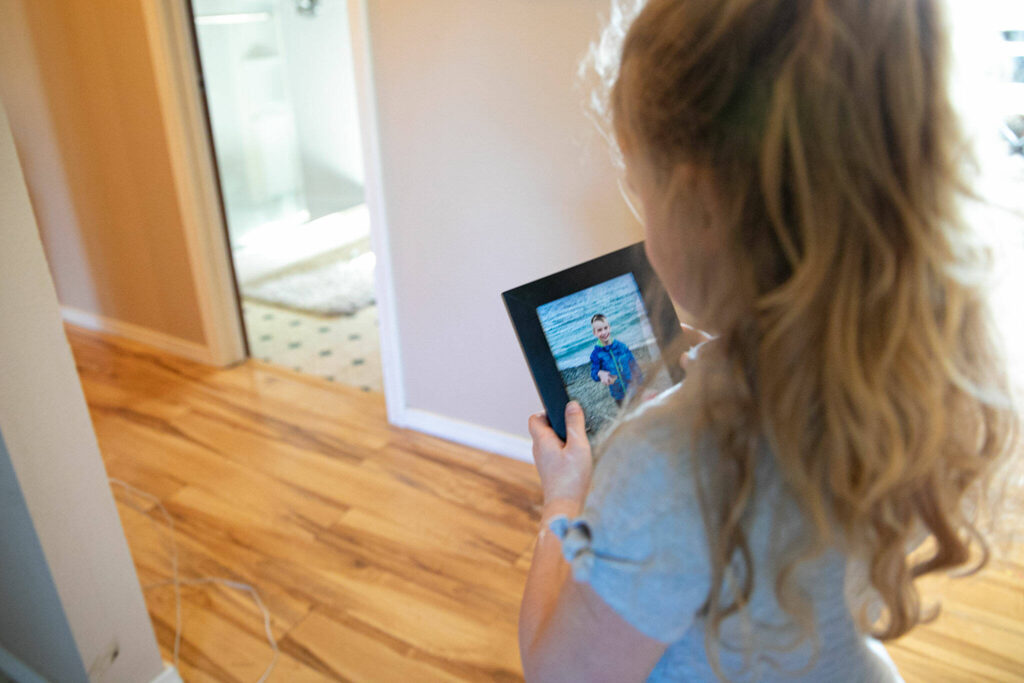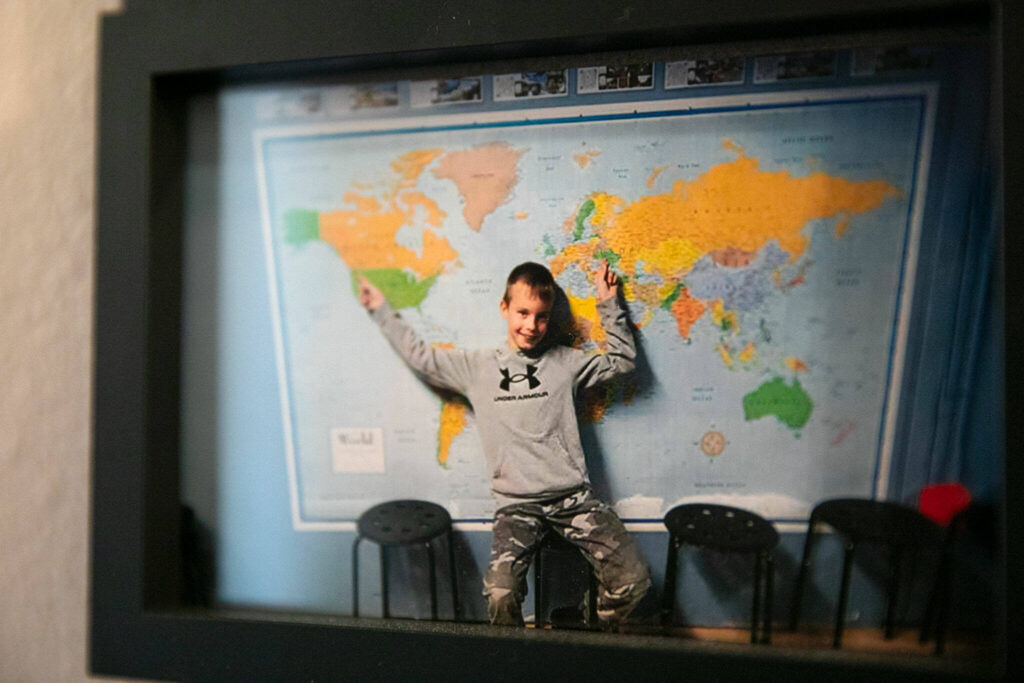SNOHOMISH — Katie-Jo Page’s three daughters are growing up on a small Snohomish farm. At 2, 5 and 7 years old, they don’t know about the war in Ukraine.
Mykyta does. The girls know him as their older brother.
The 11-year-old boy spent the winter on the farm, thanks to an international hosting program. In January, he returned to his Ukrainian orphanage with the promise he’d be adopted and come back to Washington.
Then Russian forces invaded Mykyta’s home country. Bombings, power outages and a mass exodus of Ukrainians fleeing their homes have left the Pages largely in the dark about where Mykyta is and when he’ll be able to return.
“We were counting down the days until he would come back again,” Page told The Daily Herald. “And then this happened. And we’re not sure when we’ll see him again.”
Despite a language barrier, Page said, it felt like Mykyta had always been part of the family. He fell in love with the farm animals and would dog-pile on the couch with his new sisters. He carried 2-year-old Makenna and called her “my baby.”
“It’s hard to describe the feeling, but my husband and I just knew. He was meant to be our son,” Page said. “We applied to adopt him the second day he was here.”
This weekend, Page smoothed the Spider-Man sheets on Mykyta’s twin bed. A dinosaur lamp sat on the dresser.
Page pulled up a string of text messages on her phone. After sending Mykyta back to Ukraine with a cellphone and charger, they were hearing from him nearly every day.
Last month, Mykyta texted endless heart emojis. They FaceTimed and sent photos.
On Feb. 26, the orphanage lost power. It was running on a generator as the children sheltered underground. When Mykyta’s phone ran low on battery, Page told him to keep her phone number on a scrap of paper in his backpack.
The last messages the couple received from Mykyta came a few days later. He sent a voice memo on Feb. 28: “I love you, mama.”
He understands the war that’s raging, Page said.
“Because most of the time, he’d ask me when I’m coming to save him, when I’m coming to get him,” she said. “I think it was Saturday, he said I can’t save him anymore, because ‘the war is too big,’ and the airports are closed. So he’s scared. And no one should have to go through that. Especially a kid.”
Page is in a group chat with other parents working to adopt kids from the same orphanage. They share updates sent by the kids or other Ukrainian contacts. After days of silence, a girl from the orphanage confirmed over text message last weekend that they were safe. There were few other details, Page said.
Mykyta described the underground shelter he slept in as cold and having “little light.”
“From what’s being relayed to us, most of them are sleeping in some sort of bunker or basements every night,” said Jill Krenzer, who is working to adopt a young boy from the orphanage.
For safety reasons, the family declined to provide Mykyta’s last name or the city where he has been sheltering.
Krenzer lives in New York and works with Host Orphans Worldwide, the program that brought Mykyta to Snohomish late last year. The organization coordinates with more than a dozen orphanages in Ukraine and has been pushing them to evacuate. Reuniting children with their American host families, Krenzer said, would be less traumatic than introducing them to foster care systems in nearby countries.
A bid to do that has hit roadblocks.
“We’re working with lawmakers here and in Ukraine to try to help take that burden off the foster system in other European countries, and let them know that there are families here willing to take these kids,” Krenzer said. “It’s literally a moment-by-moment situation.”
Page reached out to members of Congress for help, including Democratic Sen. Suzan DelBene. But what happens to the kids will largely depend on their home country.
“It’s our understanding that the issue is more on the Ukrainian side than on the U.S.,” a spokesperson from DelBene’s office told The Herald.
The U.S. State Department has formally requested that Ukraine expedite processing cases for children with finalized adoptions. It also asked the country to allow for virtual adoption court proceedings and to waive waiting periods. That would help families further along with the adoption process. But it offers little help to Page.
Adoption proceedings can take longer than a year. The war, Krenzer said, means they’ve “come to a screeching halt.”
“I don’t really know how else to put it,” she said. “There’s no government buildings over there to process things. People are figuring their paperwork is probably burned up at this point.”
Russian President Vladimir Putin had not launched an invasion when Mykyta hopped on a plane back to Ukraine. Even so, the goodbye was painful, Page said.
During his stay in the Pacific Northwest, the family took him to his first movie and showed him the ocean for the first time. He said “I love you” to Page and celebrated his birthday.
“He cried a lot,” she said. “He’d just curl up on my lap and just cry and say he wanted to stay.”
The orphanage doesn’t have much money.
“He’d just say he’s hungry a lot,” Page said. “And that’s so hard.”
The family is determined to bring Mykyta back to Snohomish.
Sitting in the living room, Page gestured to her forearm. A tattoo features the names Makenna, Emalyn, Kyla and Mykyta.
At the kitchen table, Emalyn, 5, drew pictures of her family.
“This is mommy,” she said, pointing to her artwork. “And this is Mykyta.”
Claudia Yaw: 425-339-3449; claudia.yaw@heraldnet.com. Twitter: @yawclaudia.
Talk to us
> Give us your news tips.
> Send us a letter to the editor.
> More Herald contact information.
